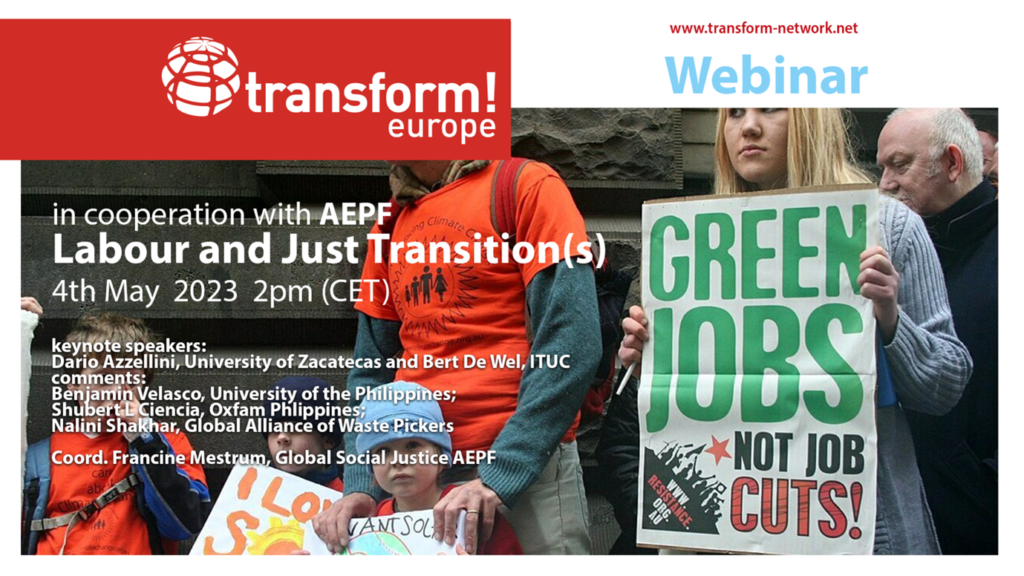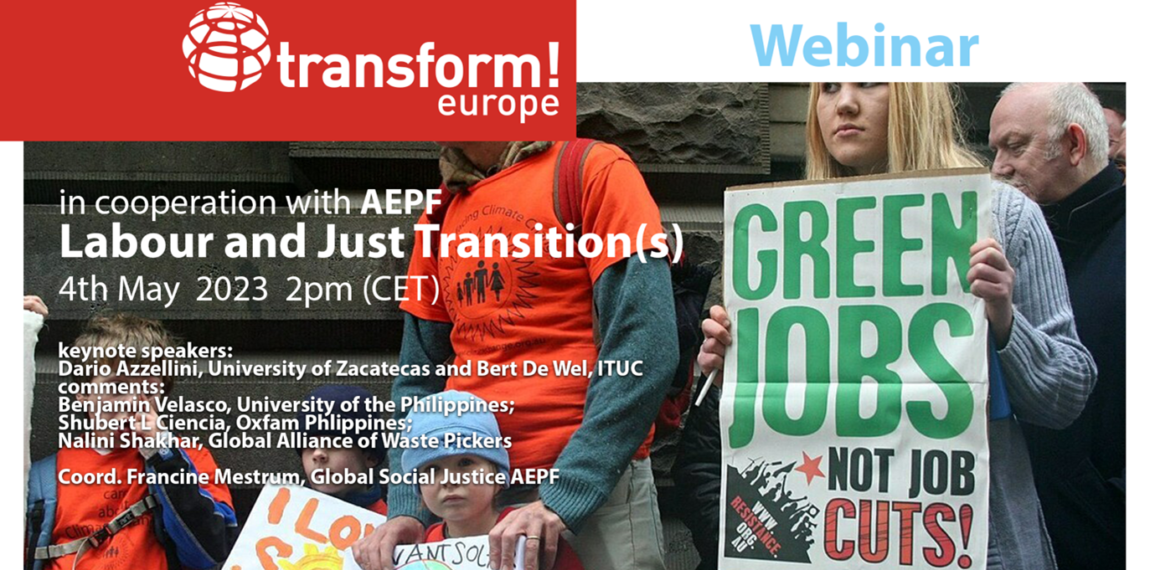Webinar: Labour and Just Transition(s)
This webinar, hosted by transform! europe and AEPF (Asia Europe People’s Forum), aims to explore and discuss ways to overcome the often sterile debates between orthodox and heterodox advocates of ‘change’ and ‘transition’ in order to solve existing ecological, economic and social problems.
Watch the Webinar:
Keynote speakers:
- Dario Azzellini, researcher
- Bert De Wel (ITUC)
Comments:
- Benjamin Velasco, University of the Philippines
- Shubert L Ciencia, Oxfam Phlippines
- Nalini Shakhar, Global Alliance of Waste Pickers
Moderation:
- Francine Mestrum, Global Social Justice and AEPF
Webinar Summary:
 Climate justice and social justice go hand in hand, one is not possible without the other. Less clear is how this can be materialised. From a social justice perspective, many questions remain unanswered in various sectors and many contradictions remain unsolved.
Climate justice and social justice go hand in hand, one is not possible without the other. Less clear is how this can be materialised. From a social justice perspective, many questions remain unanswered in various sectors and many contradictions remain unsolved.
When talking about ‘green jobs’, ‘de/post-growth’ or ‘extractivism’, it is easy to get the impression that these concepts are nothing more than new names for old demands in the context of climate change.
The purpose of the proposed activity is not to find concrete, single-minded answers to different problems, but rather to go beyond the moral discourses, to try to solve the contradictions and to offer realistic strategies for working towards a different world. We are aware of the remaining gap between green, left-green and left-wing solutions to existing ecological, economic and social problems, and we want to try to overcome the often sterile debates between orthodox and heterodox advocates of ‘change’ and ‘transition’.
The main question remains: how to develop a convincing and realistic new progressive discourse about a new and better world that people can fight for? With what strategy?
On the question of work, we have to take into account the many uncertainties that still exist at the level of definitions, as well as the divergent answers that might be given depending on geography (North vs. South?), sectors, technological fixes, etc.
We must also be aware of the fact that in Asia there is a lack of social rights in general and labour rights in particular; in several countries there is not even a right to organise. More generally, austerity policies around the world are threatening people’s living and working conditions.
The ambition could be to make clear that social justice is a precondition for climate justice, not in terms of hierarchical priorities, but in the sense that people need to be ensured a life in dignity before they can be expected to participate in the transition without fear of further setbacks. It seems therefore inevitable to reflect on structural changes of the economic system in general and of the “labour markets” in particular.
This webinar should not be an end point, but a step towards a more complete and coherent perspective on just transition from a social justice perspective. For further steps, cooperation with other AEPF thematic clusters is most welcome.



